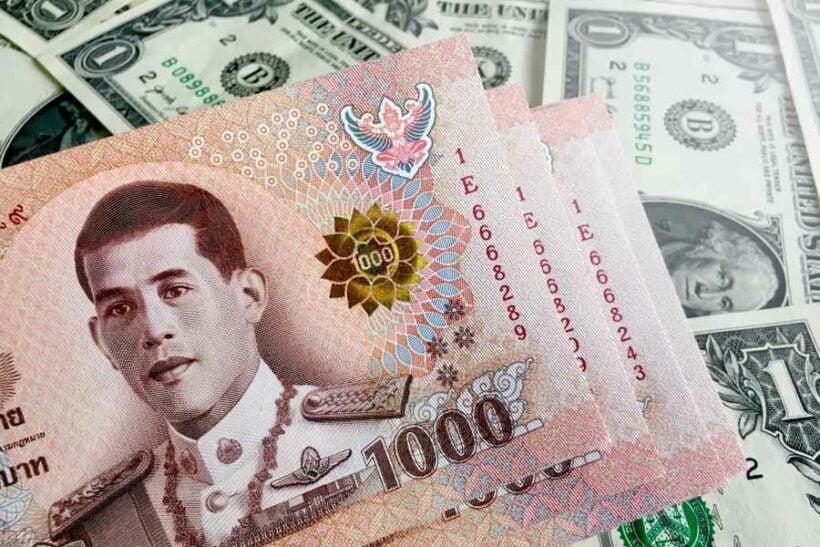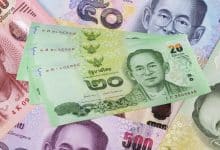The almighty baht set to fall further despite rate cuts, stimulus

A lot has changed for the baht.
It was only months ago that The Bank of Thailand considered drastic measures to rein in the rambunctious baht, whose massive gains in currency markets made it the darling of speculators. In December Kasikorn Bank released a report outlining reasons the baht “will remain strong into 2020.” The bank’s research arm forecast the baht would move in a range of 30.1 – 30.5 baht to the US$ for the next few quarters at least. (As of today exchange rate is 32.83 US$ to 1 baht) They warned then that Thailand’s November export data would likely to be in negative territory, another victim of the “continuing strength of the local currency.”
Those days are gone, and the baht now looks to tumble further after the BoT cut interest rates to counter the impact of the Covid-19 coronavirus. The decisions came in a hail of announcements starting with an emergency rate cut on Friday night. The new measures are a further blow for the baht, which has already slipped over 9% this year, more than erasing last year’s gains. There’s also slowing economic growth and the worst drought in decades. And a delay in the government’s budget due to political wrangling didn’t help matters.
Friday’s move cut rates by 25 basis points to a new record low of 0.75%. It was the second reduction in as many months, coming ahead of today’s scheduled policy meeting. The policy committee has said the virus outbreak is likely to be “more severe” than previously thought and it will “take time for the situation to normalize.”
Only two weeks ago the government announced a massive stimulus package, well beyond its earlier Chim Shop Chai (Eat Shop Spend) programs, to “return growth to positive territory.” Policymakers went before the media, saying they’ll set up a mechanism to allow banks to use money market and bond funds for collateral to enhance liquidity and make funds available for companies to refinance corporate bonds.
The coronavirus has already taken its toll on Thailand’s newly-struggling currency, decimating the nation’s tourism industry, largely by reducing visitors from China, who alone accounted for some 3% of the country’s gross domestic product. Tourism revenue has slumped 43% in February from a year earlier. Furthermore exports tumbled 4.5% the same month, according to a Bloomberg report.
The BoT’s benchmark rate is now just a fraction above the level of inflation, putting Thailand on the cliff of joining the list of nations with negative real policy rates.
“The odds of a recession over the next 12 months have jumped to 30% from just 10% a year ago. Across Asia, only Japan has a higher probability”, according to Bloomberg surveys of economists.
While the number of virus cases in Thailand remains well below those in the world’s worst-affected countries, the recent spike suggests there’s potential for the situation to get a lot worse, meaning even more bad news for the baht. Yesterday there was an announcement of a state of emergency and the Cabinet’s approval of a 117 billion baht stimulus package.
SOURCE: Chiang Rai Times
Latest Thailand News
Follow The Thaiger on Google News:


























